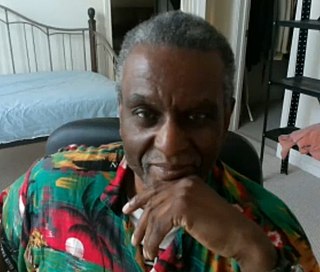A Quote by Max Heindel
It is the conflicting interests of the man and the woman, the home and the shop, the Church and the State, which cause the economic struggle, the war and the strife with which mankind is cursed and which make all long and pray for the reign of peace.
Related Quotes
We are in a war of a peculiar nature. It is not with an ordinary community, which is hostile or friendly as passion or as interest may veer about: not with a state which makes war through wantonness, and abandons it through lassitude. We are at war with a system, which by its essence, is inimical to all other governments, and which makes peace or war, as peace and war may best contribute to their subversion. It is with an armed doctrine that we are at war. It has, by its essence, a faction of opinion, and of interest, and of enthusiasm, in every country.
Truly, there are terrible primal arcana of earth which had better be left unknown and unevoked; dread secrets which have nothing to do with man, and which man may learn only in exchange for peace and sanity; cryptic truths which make the knower evermore an alien among his kind, and cause him to walk alone on earth.
It is not a struggle merely of economic theories, or forms of government or of military power. At issue is the true nature of man. Either man is the creature whom the psalmist described as a little lower than the angels ... or man is a soulless, animated machine to be enslaved, used and consumed by the state for its own glorification. It is, therefore, a struggle which goes to the roots of the human spirit, and its shadow falls across the long sweep of man's destiny.
The Church even now is the kingdom of Christ and the kingdom of heaven. Accordingly, even now His saints reign with Him, though otherwise than as they shall reign hereafter; and yet, though the tares grow in the Church along with the wheat, they do not reign with Him. For they reign with Him who do what the apostle says, 'If you are risen with Christ, mind the things which are above, where Christ sits at the right hand of God. Seek those things which are above, not the things which are on the earth'.
Every man, in proportion to his virtue, considers himself, with respect to the great community of mankind, as the steward and guardian of their interests in the property which he chances to possess. Every man, in proportion to his wisdom, sees the manner in which it is his duty to employ the resources which the consent of mankind has intrusted to his discretion.
We must adjust our value systems and work to modify today's societies, in which economic interests are carried to the extreme and irrationally produce not merely objects, but weapons of war. These societies don't care about the destruction of the planet and mankind as long as they earn profits - it can't go on like this.
As long as colonialism was allowed to reign and fester in Africa, it was going to be a source of tension, if not war, as was evidenced by World War I itself, which, among other things, featured Germany on one side of the barricades and Britain, which had come earlier to the table of colonial plunder, on the other.



































